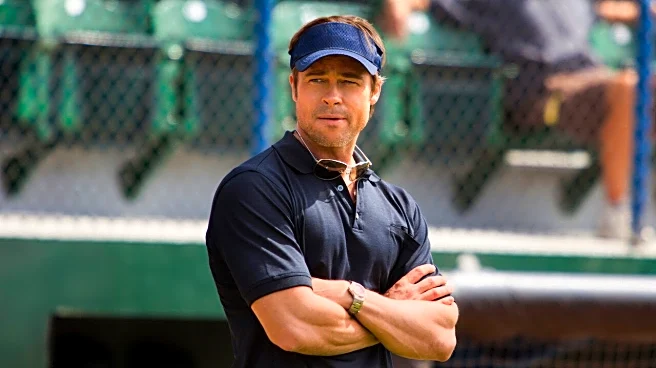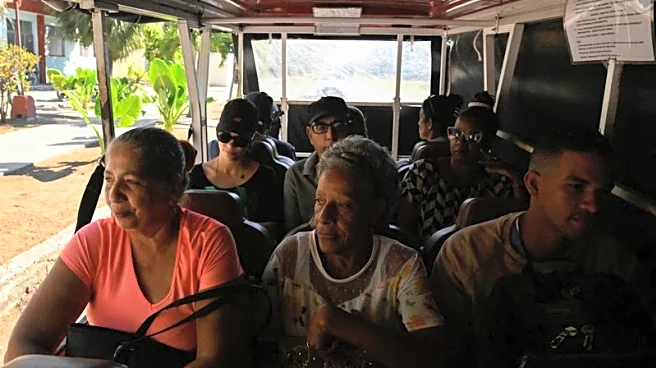What's Happening?
The International Olympic Committee (IOC) has terminated a 12-year agreement with Saudi Arabia, which was intended to host the inaugural Olympic Esports Games in Riyadh. The decision was made mutually,
with both parties agreeing to end their cooperation on the event. This move is a setback for Saudi Crown Prince Mohammed bin Salman, who has been investing heavily in the video game industry as part of the Vision 2030 initiative to enhance the country's global image. The IOC plans to develop a new strategy for the Olympic Esports Games, aiming to align it more closely with the long-term goals of the Olympic Movement. The IOC has previously conducted test events with racing games and beat-em-ups, but there is concern over the suitability of popular competitive games like Call of Duty, which involve violence, for the Olympic ethos.
Why It's Important?
The cancellation of the deal with Saudi Arabia highlights the challenges and complexities involved in integrating esports into the traditional Olympic framework. The IOC's decision reflects a broader debate about the nature of esports and its compatibility with Olympic values, particularly concerning games that involve violence. This development could impact the esports industry by influencing how future events are structured and which games are included. For Saudi Arabia, the decision is a blow to its efforts to use sports and gaming to improve its international reputation, a strategy often criticized as 'sportswashing' due to the country's human rights record. The IOC's new approach could set a precedent for how esports are incorporated into global sporting events, potentially affecting stakeholders across the gaming and sports industries.
What's Next?
The IOC intends to pursue a new partnership model for the Olympic Esports Games, aiming to launch the inaugural event as soon as possible. Meanwhile, Saudi Arabia plans to continue its investment in esports, with the Esports Nations Cup scheduled for November 2026. The IOC's future strategy will likely involve careful selection of games that align with Olympic values, potentially excluding violent titles. This could lead to a reevaluation of how esports are perceived and integrated into traditional sports frameworks. Stakeholders in the esports industry, including game developers and event organizers, will be closely watching the IOC's next steps, as these decisions could influence the direction and growth of esports on the global stage.
Beyond the Headlines
The IOC's decision to cancel the deal with Saudi Arabia and develop a new approach to esports underscores the ongoing tension between traditional sports values and the rapidly evolving world of competitive gaming. This situation raises ethical questions about the role of violence in esports and its place in the Olympic Games. Additionally, the move highlights the geopolitical dimensions of international sports agreements, as countries like Saudi Arabia use major events to bolster their global standing. The outcome of the IOC's new strategy could have long-term implications for how esports are perceived and valued in the context of global sports.












